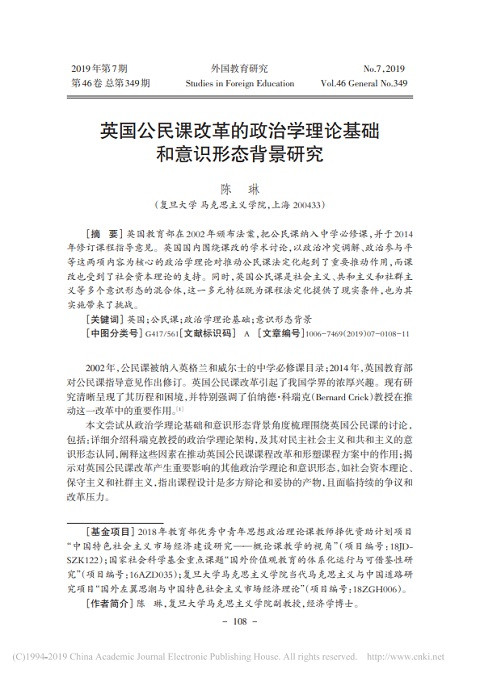
GCED Basic Search Form
Quick Search
Close
현재 위치
자료
The Theoretical Foundation and Ideological Background of the Citizenship Curriculum Reform in England (Studies in Foreign Education; Vol. 46, No. 7)
출판지역 | 출판년도 | 페이지:
Changchun | 2019 | p. 108-118
ISBN/ISSN:
ISSN 1006-7469
지역:
아시아 태평양 지역

Citizenship became part of the compulsory courses of secondary schools in England in 2002. The guideline was revised in 2014. Fierce academic debates shaped the curriculum reform. Political theory of political conflict mediation and political participative equality played an important role in promoting the legalization of Citizenship education. The wide acceptance of social capital theory also helps to win the necessary support. The current curriculum is a mixture of various ideologies such as socialism, republicanism and communitarianism. This multi-feature provides both pragmatic conditions for the curriculum’s legalization and challenges for its implementation.
자료 URL:
파일:
자료 타입:
연구 보고서 / 학술논문
주제:
시민 / 시민성 / 민주주의
교육 분야:
중등교육
